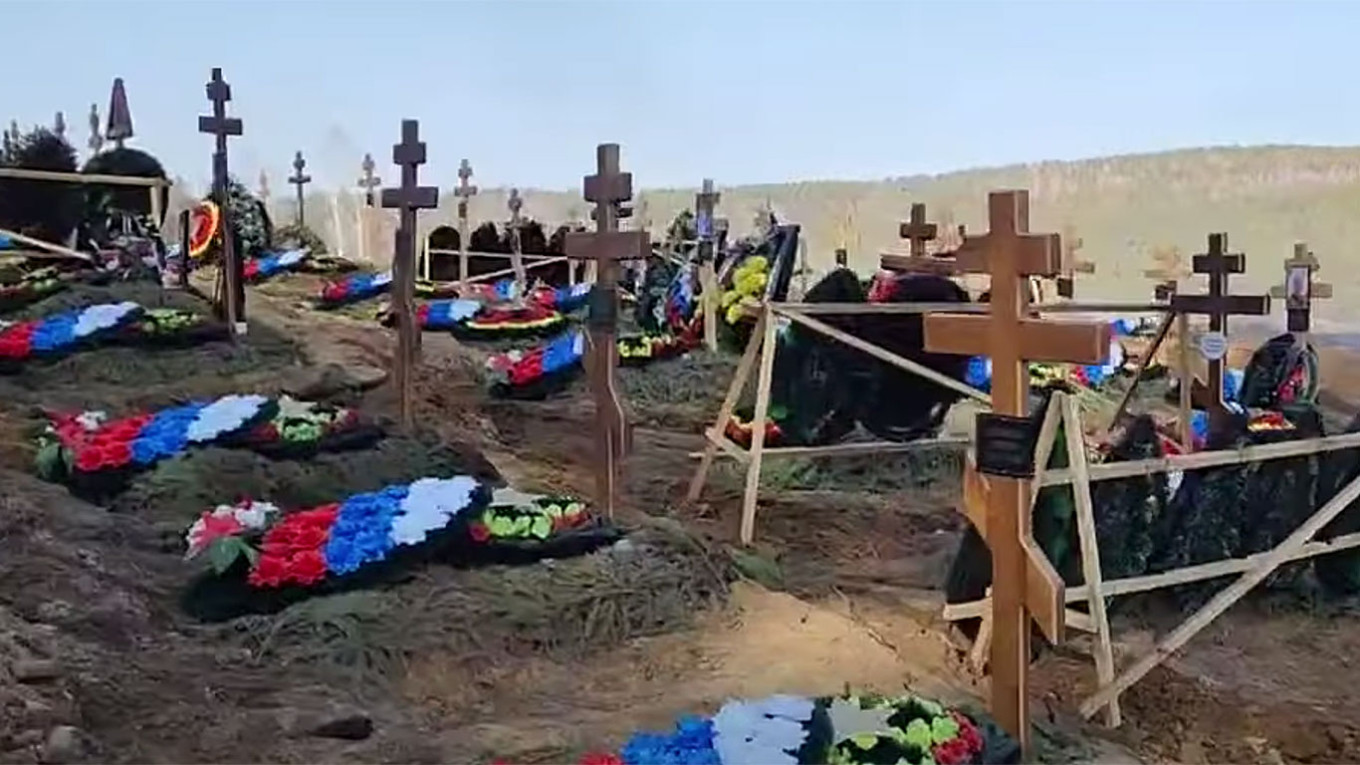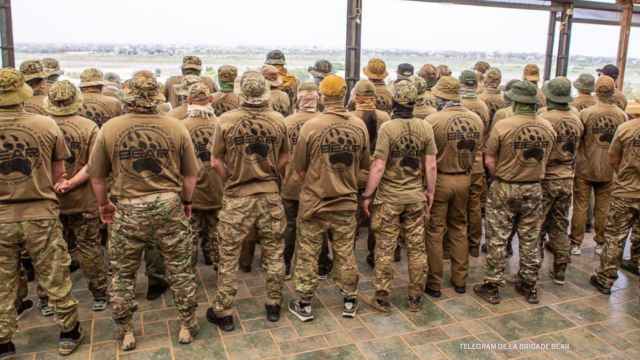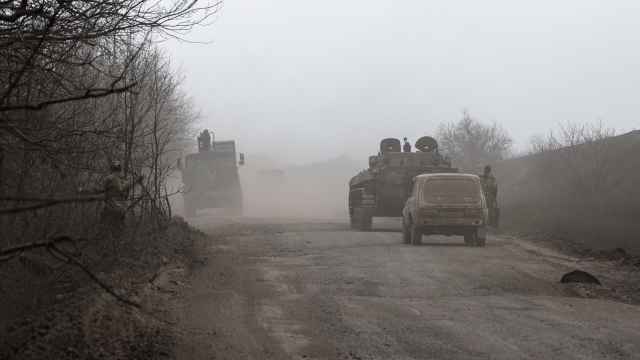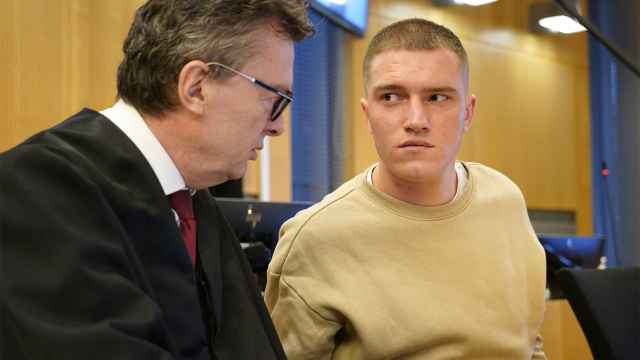A graveyard containing scores of dead fighters from Russia’s Wagner mercenary outfit has been discovered in the Siberian region of Irkutsk, according to a report published by the independent news outlet People of Baikal.
The previously unreported 53 graves are in a corner of Aleksandrovsky cemetery some 11 kilometers from regional capital Irkutsk.
Each grave was covered with green spruce branches and two wreaths: one in the colors of the Russian tricolor, the other in the colors of the Wager emblem with a label reading: "Blood. Honor. Motherland. Courage. PMC Wagner."
While there are no official figures for the number of Wagner fighters — which include those recruited from Russian prisons — killed in Ukraine, thousands are believed to have died at the front, particularly around the heavily-contested city of Bakhmut where Wagner troops have played a prominent role.
The existence of several other special Wagner cemeteries has come to light since the start of the Ukraine War.
Work was ongoing on dozens more graves when People of Baikal journalists visited the Irkutsk site recently.
Since the earth in Irkutsk is still frozen, workers reportedly build fires to thaw the ground and cover pits with metal sheets for retaining more heat, from which smoke rises.
At least 43 of the 53 dead were convicts between the ages of 20 and 62, according to the People of Baikal report published Monday in which journalists matched the names of the dead with local court records.
Among the killed mercenaries were murderers and criminals convicted of theft and drug-related offenses.
Some had been killed in combat in Bakhmut, according to People of Baikal, the focus of a months-long battle of attrition in eastern Ukraine.

Journalists first learned about the burial site in March as a result of a social media post by relatives of a convicted criminal from the Republic of Buryatia who had signed up to join Wagner and was killed in Ukraine.
After the soldier’s death, Wagner offered to bury him at the gravesite in Irkutsk, but his relatives refused.
Several relatives of Wagner fighters buried at the Aleksandrovsky cemetery first learned their loved one had been killed after People of Baikal reached out to them for comment.
Vitaly Votanovsky, who has documented the deaths of Russian soldiers in Ukraine by monitoring graveyards — including those used by Wagner — in the southern Krasnodar region, told The Moscow Times that it is common for family members not to hear about the deaths of relatives at the front.
"In the Bakinskaya cemetery [in Krasnodar], I discovered that only two out of 600 soldiers buried there were listed as killed. And all the others were quietly buried. Nobody knew about them," he said.
The Bakinskaya cemetery, which contains Wagner fighter graves, was visited earlier this month by Wagner boss Yevgeny Prigozhin who pledged to turn it into a “memorial for future generations.”
One of the relatives of a soldier buried at the Irkutsk cemetery contacted Wagner after hearing about the soldier's death from People of Baikal journalists.
According to the relative, a Wagner company representative said that they had made attempts to contact the family but received no response and decided to bury the soldier on their own.
Votanovsky, who fled Russia earlier this month after receiving death threats, said he expects more graveyards like the one in Irkutsk to come to light in the coming months.
"The government has an interest in hiding its military losses. So, of course, there will be more and more,” he told The Moscow Times.
The last official death toll from the Ukraine war provided by the Russian military was in September when Defense Minister Sergei Shoigu said 5,937 troops had been killed.
However, independent researchers who monitor social media posts, media reports and new graves across Russia estimate the true death toll in Ukraine is likely to stand at over 41,000 people.
Leaked U.S. documents that came to light earlier this month show Washington believes up to 43,000 Russian soldiers have been killed in Ukraine.
Votanovsky said the deaths of soldiers and the toll it takes on their families could shift public attitudes toward the war.
"When I've met family members at cemeteries around the graves of killed soldiers almost all of them have a negative view of the war," he said.
A Message from The Moscow Times:
Dear readers,
We are facing unprecedented challenges. Russia's Prosecutor General's Office has designated The Moscow Times as an "undesirable" organization, criminalizing our work and putting our staff at risk of prosecution. This follows our earlier unjust labeling as a "foreign agent."
These actions are direct attempts to silence independent journalism in Russia. The authorities claim our work "discredits the decisions of the Russian leadership." We see things differently: we strive to provide accurate, unbiased reporting on Russia.
We, the journalists of The Moscow Times, refuse to be silenced. But to continue our work, we need your help.
Your support, no matter how small, makes a world of difference. If you can, please support us monthly starting from just $2. It's quick to set up, and every contribution makes a significant impact.
By supporting The Moscow Times, you're defending open, independent journalism in the face of repression. Thank you for standing with us.
Remind me later.






